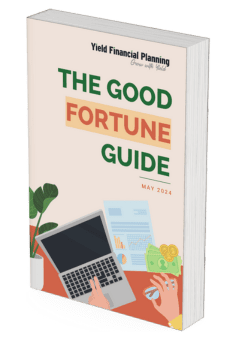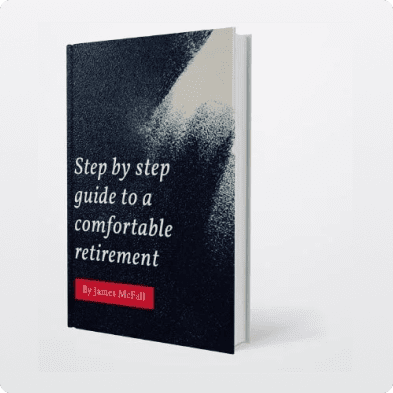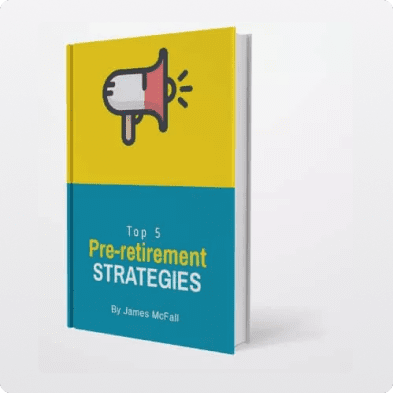If you are considering downsizing your home, it’s likely you are getting close to retirement or are already retired.
This is a smart strategy to explore and could well be the best decision. However, it isn’t always beneficial, and as with every financial decision, downsizing your home should be planned. Property decisions in particular should be planned as it is very expensive to buy and sell.
To help with the decision, we’ve outlined the 6 essential considerations of downsizing your home.
1. Establish ‘Why’ You’re Downsizing Your Home
Connecting with your ‘why’ is important if it is going to be a move you are happy with for the long term.
To downsize means leaving a home you have probably been in for several years and will likely have built a lot of good memories in. It is therefore important that your next move is positive and does not leave you with any regrets.
Is your ‘why’ to release some equity that can be added to your retirement savings? Is it for convenience? To move closer to the city or family? Possibly it’s to move out of the city to be closer to the seaside or move to the country. You could downsize your home for a combination of reasons.
The act of downsizing would usually imply moving into a home of lesser value too, which may mean there is less exposure to the property market and future potential growth. Therefore, it is not a decision to be taken lightly and your ‘why’ should outweigh the simple act of remaining where you are on several levels.
2. Are You Downsizing Your Home For Economic or Emotional Reasons?
When you become clear on your ‘why’, you should weigh up if your motivations are economic, emotional, or a combination of both.
If your motivations are economic, then it’s easier to quantify.
There will of course be emotional considerations, as you are choosing to buy your new home which you will hopefully happily live in for years to come. However, it is easier to process through a financial lens.
When the decision is for more emotional reasons, there are still financial implications of course, and for this reason, it gets more complicated.
As an example, assume your ‘why’ is to move closer to family. It is an interesting one because it is an entirely emotional motivation, and emotion doesn’t usually mix well with investing.
If family is a key driver for the move, don’t lose sight of the fact that while they may be interstate or overseas now, they are just as likely to move again. This could leave you wondering why you moved in the first place.

3. Cost of Replacement Asset Including Buy & Sell Costs
Have you looked into how much it will cost to buy a new home in line with your specifications? Not just looked at what homes are selling for, but what homes that you like have actually sold for? This is a fundamental question and should dictate the viability of the decision. When determining the cost of an asset you also need to add in the buy & sell costs.
Buying and selling property is one of the most expensive decisions you can make and it is therefore a huge consideration in any decision to turn a property over.
As a rule of thumb, you should put aside 7% of your home sale value towards buy/sell costs. This includes agent fees, marketing costs, conveyancing costs, stamp duty, transfer, and registration fees.
Often once the cost of replacement is fully considered, the decision to downsize can end up being put off.
If the exercise is intended to release some equity to bolster retirement savings, the amount lost to replacement costs may impact you being able to achieve all that you want from the process. The new property you’ve bought has also left you with less exposure to future growth too.
4. How Long You Expect to be in the New Downsized Home
It is clear that if you do decide to downsize it will ideally be with the long term in mind. It’s thus crucial to ask yourself how long you expect to live there.
Ideally, you are buying a home that will foreseeably be suitable for your entire retirement. In this case, you also need to consider how well it meets your short, medium and long term needs in retirement, particularly as mobility becomes an issue.
Things like proximity to infrastructure and public transport are key considerations, as is whether the place is single story or has stairs. You don’t want to become trapped on the ground floor, simply because you can’t get up the stairs.
Looking at this decision through a long term lens is therefore really important.
Other things like how it meets your longer term family requirements. Do you want your children and their families to be able to stay when they visit? This particular example comes back to the emotional preference for being able to house your family, to the economic reality of it.
How often is the space likely to be used? If only twice a year, then it may be a luxury you cannot afford.

5. Age & Opportunity to Contribute Excess to Super
Downsizing can be an excellent way to release some equity from your home, towards your retirement. However, if this is your intention, you want to be aware of super rules.
Superannuation is one of the most powerful ways to invest for retirement and it is most likely a great strategy to get the proceeds you yield from the sale process into super.
The decision to downsize should be made considerate of the super rules, so you can get as much as possible into the super environment. It’s the difference between investing in a 0% tax environment and a taxed environment if investing personally.
6. Age Pension – Potential Impact to Assets & Income Test
Your principal place of residence is an exempt asset for Age Pension. However, when equity is released it will become assessable.
76% of Australian retirees receive some Age Pension, so it is a significant consideration to be fully aware of how a downsize and releasing equity might impact your Age Pension entitlement.
You should look at strategies for how impact is minimised, thus making the proceeds you do release work as hard as they can for you to make downsizing your home as beneficial as possible.
Yield Financial Planning is Here to Help
If anything we’ve discussed here interests you and want to know more about how implementing a downsizing strategy can assist in meeting your retirement goals, please contact the specialist team at Yield.

















